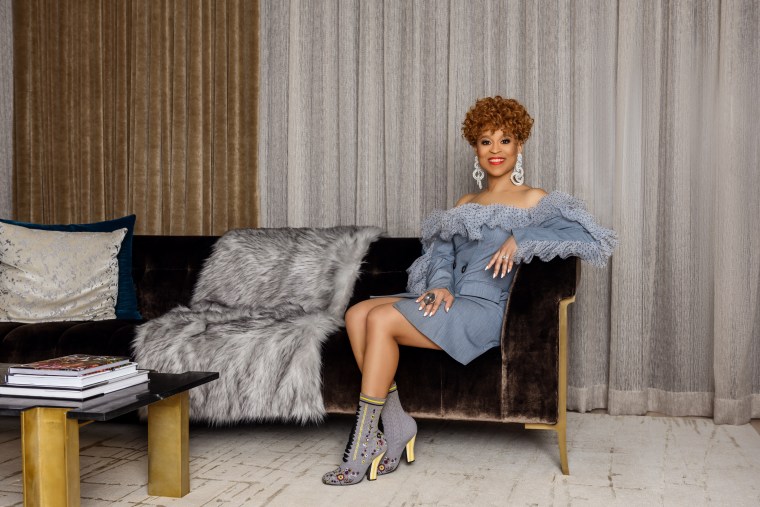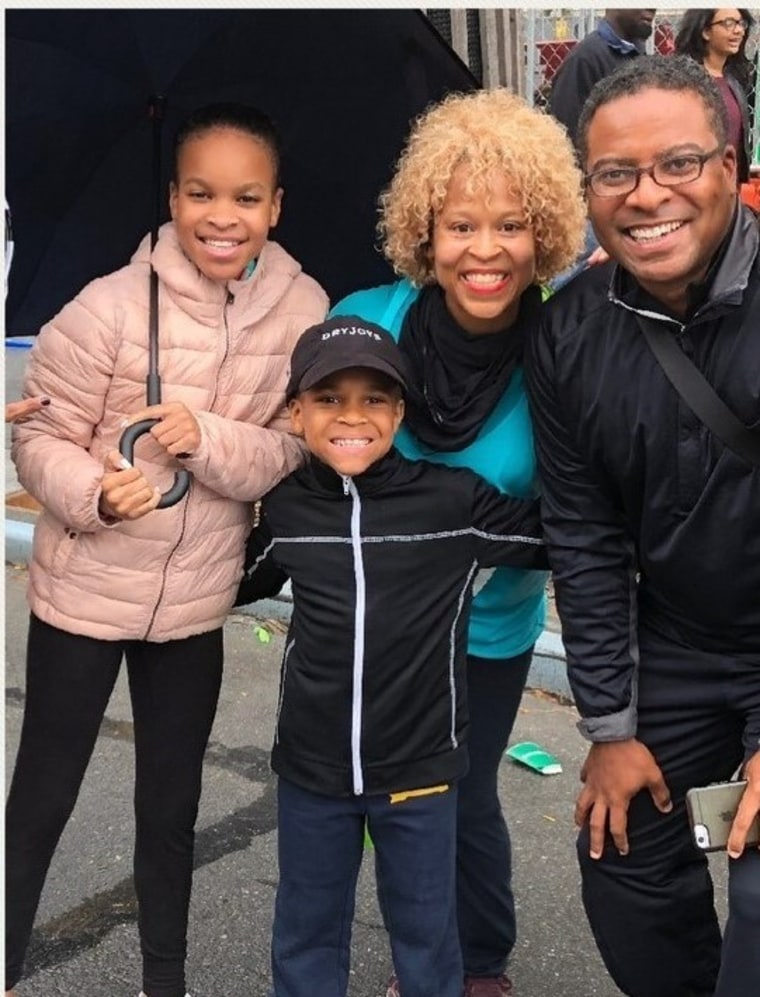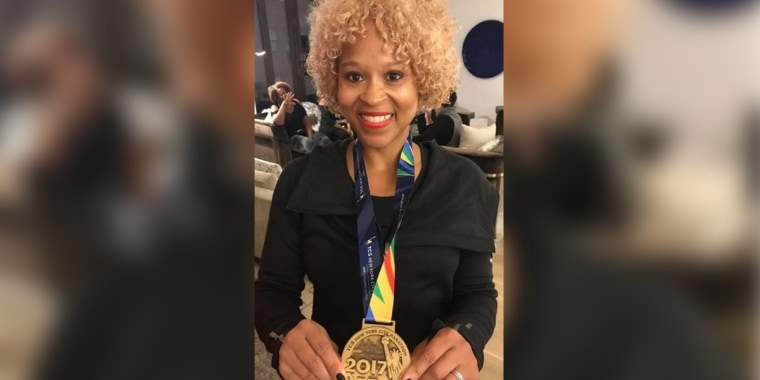Your career is a lot like a marathon – and not a sprint.
Just ask Esi Eggleston Bracey, who leads the growth and development of Unilever’s $5 billion beauty and personal care business in North America.
After running the New York City marathon twice, Bracey came to the realization that the 26.2-mile race is like a person’s career trajectory: you run the first part with your legs, the second part with your brain and the third part with your heart.
And similar to training for a marathon, progress isn’t always linear. For example, Bracey initially found her footing by following more than one passion. She went to Dartmouth College, convinced she would major in math. Her father was a math teacher, and she loved everything related to numbers. But then she followed her calling of helping others, which led her to biomedical engineering, which combined science and numbers. However, after spending long hours in the lab, she realized she didn’t like being alone for so long. Finally, she found her way to the beauty industry, where she now oversees iconic brands, including Dove, Suave, Shea Moisture and more.

Bracey made a name for herself earlier in her career at P&G and Coty Inc. when she led CoverGirl's efforts to diversify the face of beauty with “real beauty” talent such as Queen Latifah, Pink, Ellen and Janelle Monae. She has also been a champion for women of color entrepreneurs and has co-founded CauseWeCare, a nonprofit that aims to keep communities safe in the face of Covid-19.
She recently chatted with Know Your Value founder and “Morning Joe” co-host Mika Brzezinski about her love for running, navigating her career in her 50s, how we can increase diversity in top management and more.
Below is their conversation, which has been edited for brevity and clarity.
Mika Brzezinski: I’m a huge runner, and yet I’ve never run a marathon. You’ve run the New York City Marathon twice! You’ve said marathons are a metaphor of all of life’s stages and that there are parallels with work and your career. Tell us about that.
Esi Eggleston Bracey: What's so interesting is you say you're a runner, but you've never run a marathon. I will say I've run two marathons, but I'm not really a runner … A marathon I think is different than running [in general]. It's all a head and heart game that you train for.
… Both times, I ran New York — 2017 was the most recent. I'd just relocated from Geneva, Switzerland, where I had been living for eight years with my kids and my family.
…What I learned is you run the first part of the marathon … the first 10 miles of the marathon with your legs. You've been training ... You're putting in the work. You're at your pace. You're good.
Then, after the first 10 miles, you're tired. The second part, you run with your head. You have your plan, you have your fueling … You've really gotta think through your strategy.
… And then the third piece is that last 6.2 miles. It is straight hard. Your legs are dead … It’s all with your heart.

My career has [also] been like that. When I think about it, life is like that. You get your education, you get your degree, you figure out what you want to do next and you just jump right into it. And that gets you to a point.
And then the next thing is you've gotta step back [and use your head] and say, "Where do I want to go from here?" … The last bit … it's all about purpose. It's about what I'm committed to in life. After being in this industry 30 years, being over 50, it's not about simply what goals I want to accomplish. It's about what impact I want to make, which is all about heart.
Brzezinski: I'm curious, just because looking at your age at 51, I have this incredible initiative with Know Your Value and Forbes magazine called “50 Over 50,” which celebrates women who have achieved significant success later in life, often by overcoming significant odds or barriers. These are women in their 50s, 60s, 70s, 80s and beyond who are achieving their greatest success, happiness, and financial empowerment after the age of 50.
And I've asked most of the women in this series this one question and mostly get the same answer: When you were in your 20s and 30s and planning your career and your life, did you ever envision your career after the age of 50?
Bracey: Absolutely not … I assumed I would at some point have a family, but I always thought that was later, later, later, later ... And when I thought about 50, even later in life, when I was in my 30s, my goal was to retire at 50. And so I tried to create a financial plan that would enable me to do that. And now it's so interesting that I'm even more committed to what's next professionally … I feel like I have the freedom to decide where I want to go from here and really powerfully choose where I want to make an impact instead of how I want to make a living.
Brzezinski: First of all, most of the women I spoke to – like you – said they didn’t envision their careers in their 50s. It was like white space. I didn't even think beyond 30, let alone 50. And yet physically, mentally and intellectually, I feel more ready, confident and competent than any other time in my career.
Switching gears, you have mentioned taking a sabbatical. In 2017, you resigned from Coty and ended up taking about seven months off. Was that a big part of your journey? Can you tell me about that?
Bracey: It was one of the best things I would say up until now that I have done, besides having my children and starting a family.
In a part of my career, I moved really fast, but beyond the moving up the ladder, I was always on an airplane. I spent 75 percent of my time on a plane, because I had global jobs. So, one morning I'd wake up in São Paulo, the next week I was in Shanghai and then somewhere in the Middle East. I was always on the road.
…I didn't really stop to think, "what am I in it for?” Like, “why am I doing it?" And the sabbatical was a bit of a time-out. I'd gone through this big merger and acquisition … It was just a big, dynamic merger, and it required recruiting a lot of people from scratch to build this company … And so, getting toward the end of that, it was like I had to see my kids. I mean, I had little kids … I relocated to New York. They were still in Geneva. So, I was really physically and mentally exhausted.
And to take that time … that recovery break to have space was priceless. And the space was being Mommy … The space was exploring my purpose here on this Earth. I didn't know what I wanted to do professionally, and I was interviewing companies instead of being interviewed. The space was wearing sneakers instead of heels that I wear every day of my life … It included training for the second New York marathon. It was a different kind of space that I just didn't have before. It was invaluable …
Brzezinski: I can imagine the clarity it provided you in the next phase of your career at Unilever.
I feel like an area where I have utterly failed – being in the TV business – was always thinking that there was a clock ticking on my career. I hope more women let life interrupt their careers and let their careers interrupt their lives more naturally and have a little bit of a sense of that there's a long runway.
I also wanted to ask you about diversity and diversity at the top. You're way out ahead in bringing cultural diversity to the beauty business and advertising marketplace. But from that perspective, you probably see the challenges. What do you think are the challenges that companies in general face when it comes to trying to increase diversity at the top levels. And why is it not coming so easy?
Bracey: I think the short answer is unconscious bias. So the first thing is really embracing the business case for diversity because of how the world and America is changing. And like every other business we're in, we know we need people who represent the community, and we need them at the top, in the middle and at the entry level.
…The second is the expectation of enculturation. That companies want people to succumb to the organization instead of the organization broadening [to embrace different people] … And that’s what I’ve experienced, in changing companies. In particular, I’ve had to learn the language of the organization first to get things done, and then later work to broaden the organization to [better support me]. That requires a lot [of energy and resilience]. So I think that those are a few reasons why it’s been a struggle. [It’s not easy to match] who you are as an [underrepresented leader], with what the organization or [corporate] enterprise is, and getting past the unconscious bias to create and embrace the value of diversity.
…Also, you have got to bring other people along. The organization has to crack [this] so there’s a [pipeline] of people of color, so [one person] is not the exception … I was looking at an article on WWD, a young person in my team … She might be a brand manager at best, maybe even an associate brand manager … And she said, “I'm a Black woman. My boss is a Black woman. My boss's boss is a Black woman. And my boss's boss’s boss is a Black woman. And so I feel seen.”... It's that critical mass that helps make that happen.
